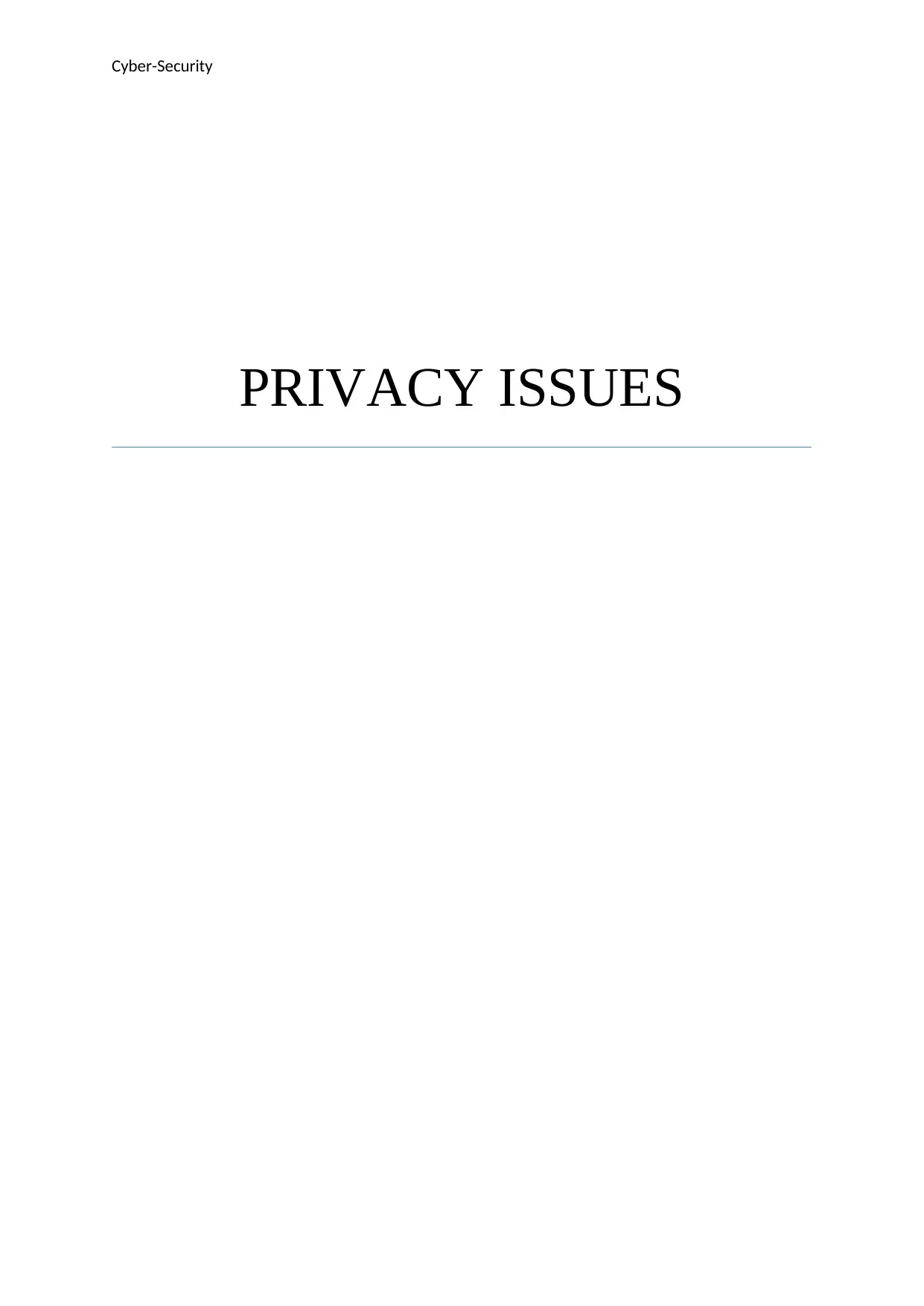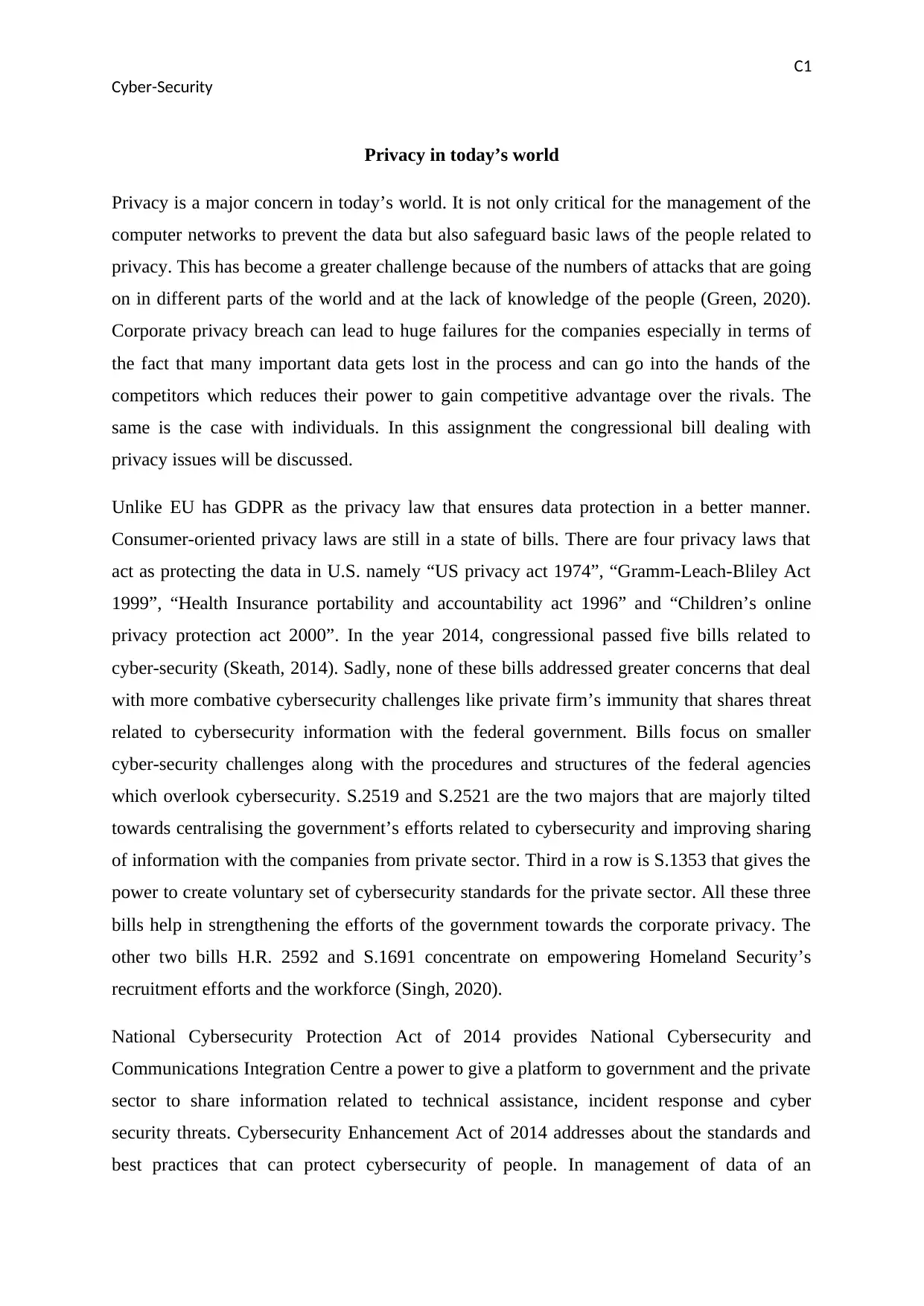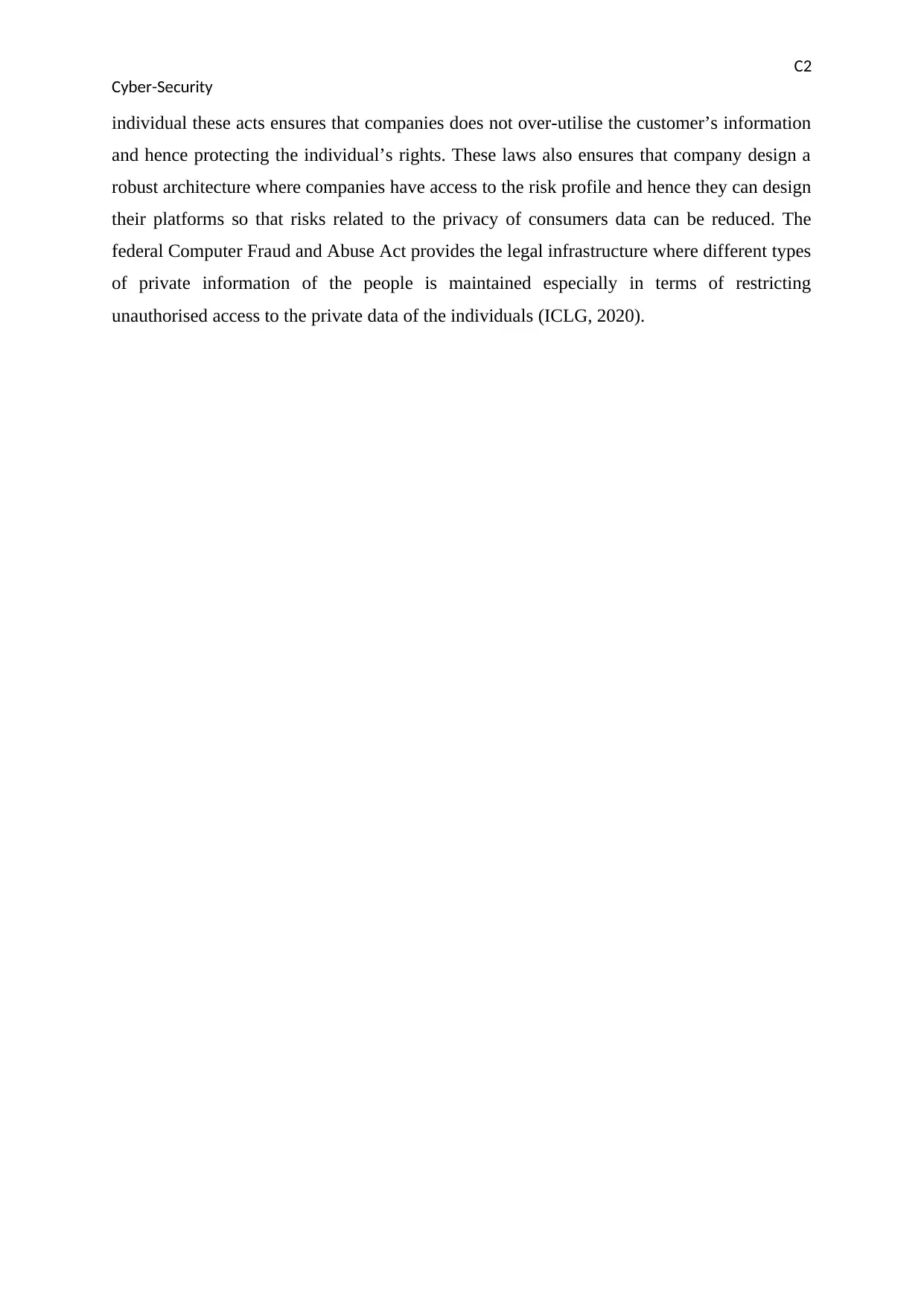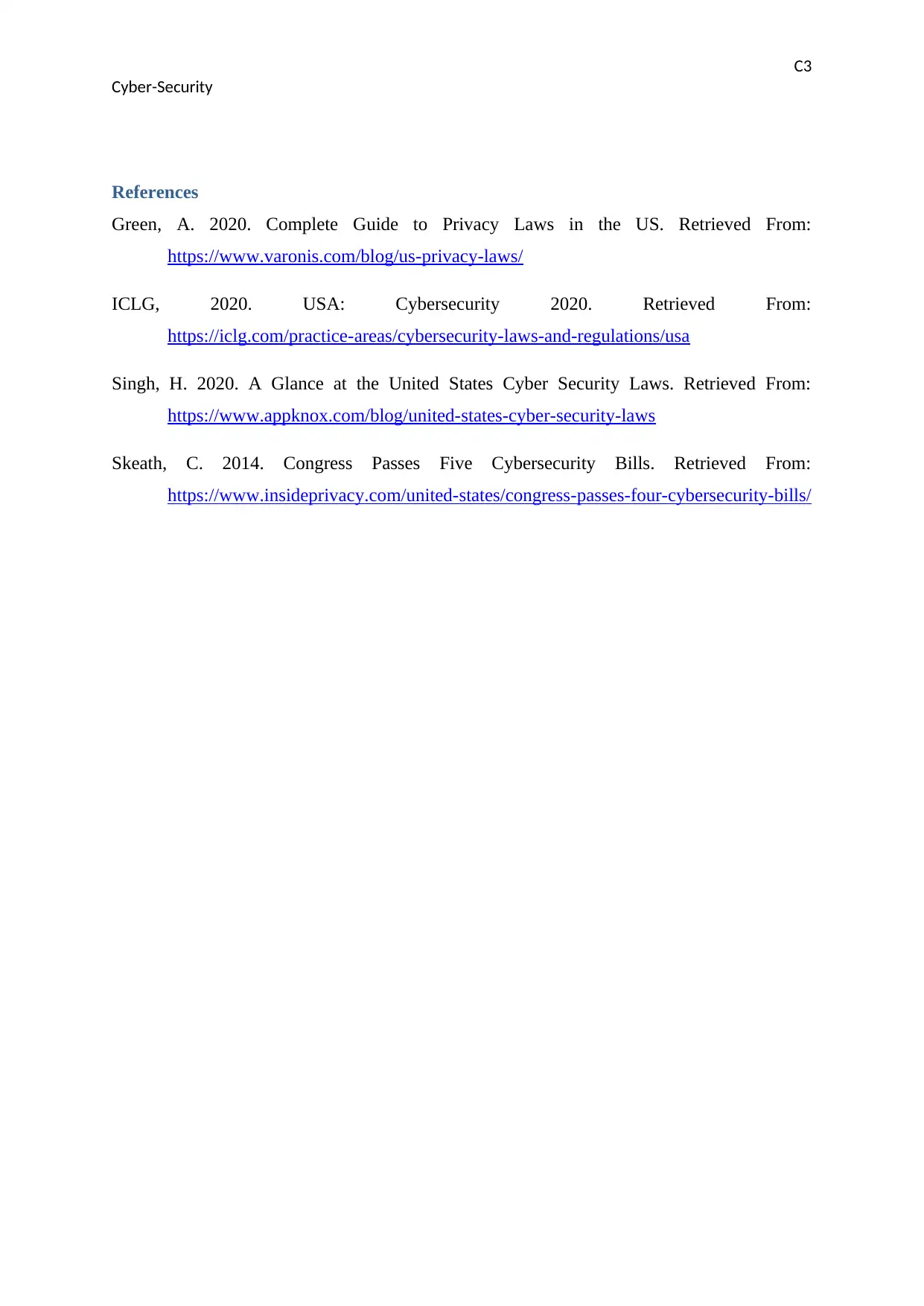Cybersecurity Privacy Issues: Congressional Bills and Data Protection
VerifiedAdded on 2022/08/12
|4
|647
|26
Report
AI Summary
This report examines the critical issue of privacy in the modern digital landscape, focusing on cybersecurity and the protection of individual data. It highlights the increasing challenges posed by cyberattacks and the lack of public awareness. The report provides an overview of US privacy laws, including the US Privacy Act of 1974, the Gramm-Leach-Bliley Act of 1999, the Health Insurance Portability and Accountability Act of 1996, and the Children’s Online Privacy Protection Act of 2000. It then delves into the congressional bills passed in 2014, analyzing their impact on cybersecurity, particularly in relation to corporate privacy breaches and data sharing between private firms and the government. The report discusses specific bills like S.2519, S.2521, and S.1353, which focus on centralizing government efforts and establishing cybersecurity standards, and H.R. 2592 and S.1691, which address workforce empowerment. The report concludes by emphasizing the importance of these laws in safeguarding consumer data, ensuring companies design robust architectures to mitigate privacy risks, and providing a legal framework to restrict unauthorized access to private information.
1 out of 4











![[object Object]](/_next/static/media/star-bottom.7253800d.svg)